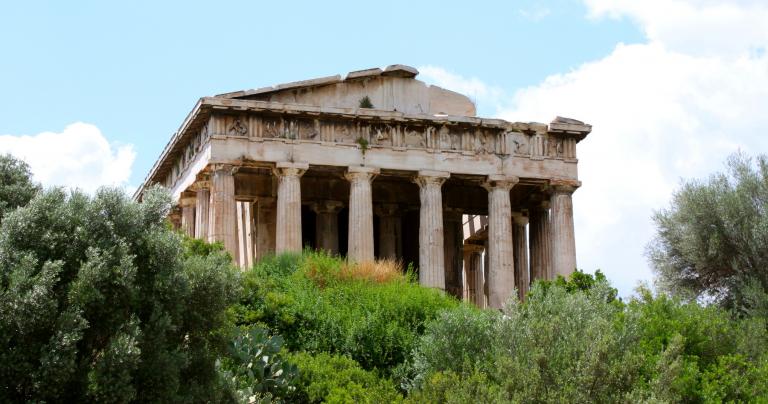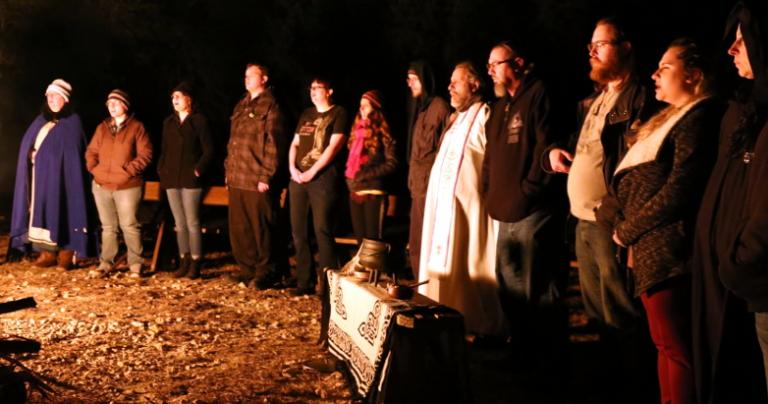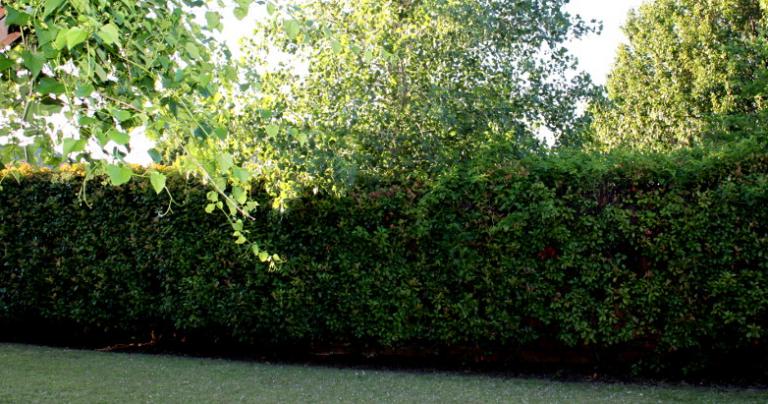Over on the Agora blog, Angelo Nasios has a very good piece titled “Who Defines Hellenism?” He writes from the perspective of a Greek-American who has spent time in Greece and who lives Greek culture. Here’s the essence of his post:
Hellenism is Greek culture. The culture of almost 11 million Greeks in Greece and millions more in the diaspora around the world. We see our culture as Hellenism, a living thing that we partake. Hellenism is the -ism of Greeks, not just of the past but also the present and future. When someone tells me Greeks do not get to define their own culture, please tell me who does then…
Hellenism is more than religion.
To avoid any misunderstandings, Angelo makes it clear he is not claiming ownership of the Greek Gods, or of classical Greek literature and philosophy. He is not arguing for folkishness.
The gods are free for everyone; you are free to worship them. No one owns the gods; the gods are not restricted to a group of people. Whoever you are that is reading this article, know that the Greek gods are your gods also. Worship them and love them as much as I do…
Hellenism is for everyone, who desires to Hellenize, when ready. Just like in ancient times.
I have always heard the reconstruction of ancient Greek religion called “Hellenism.” Changing that usage may be a challenge, and I’m not going to get into that challenge here. I’m not Greek, I don’t read or speak Greek, and I don’t actively worship any of the Greek deities. I have no stake in the definition of Hellenism and the question of who gets to define it, though I’m sympathetic to Angelo’s argument.
But this essay raises some points that all Pagans would do well do consider, both in our interactions with other religions and cultures, and as we consider what our own Paganisms (plural intentional) mean to us.

Paganism is more than belief
Christianity in general and Protestantism in particular have some rather novel ideas. Namely, that religion is all about what you believe. This was a really good marketing ploy: “you don’t have to change your diet or economics or politics – just worship our God as the only God.” That misses the point about caring for the poor, loving your neighbor as yourself, and all those “liberal” things Jesus talked about. But this is the Patheos Pagan channel, not the Patheos Progressive Christian channel. I’ll leave the definition of Hellenism to Hellenes and the definition of Christianity to Christians.
I’ve been in some pretty serious arguments over the nature of the Gods and how to worship Them, and I just devoted 1700 words to finding a common polytheist theology. As Pagans, what we believe matters.
But what we do matters more. If you come to the Denton CUUPS Lughnasadh ritual and pour an offering to Lugh, no one is going to ask if you think Lugh is an individual deity, an aspect of one deity, a metaphor for youth and skill, or anything else. In that context, what’s important is that you honor Lugh respectfully and celebrate Lughnasadh with us. What you think about Lugh is of secondary importance.
Angelo Nasios argues that Hellenism is more than believing in the Greek Gods or even worshipping the Greek Gods. He’s right. Likewise, our Paganism is more than our thoughts and actions around our Gods.
Paganism is culture
Hellenism is Greek culture – Paganism is Pagan culture. Now, I think Paganism is too broad to be considered one culture. We’re a Big Tent, not an institution.
But individual Pagan religions and traditions do have (or are) cultures. We’ve seen a lot lately about Witch Culture. Walk through the corridors of Pantheacon and you’ll see West Coast Pagan culture. In 2016 I wrote about Building Polytheist Culture, where I advocated for the cultural markers of respect for facts, experience and learning, and religious experience.
The Wiccan Rede (“an it harm none, do as you will”) is a key element of much of Pagan culture. It expresses the very common emphasis on doing things your own way, of not allowing yourself to be controlled by others and of refusing to be limited by other people’s rules, and stopping only if it’s going to hurt someone else. This isn’t just something most Pagans believe, it’s how Pagans live.
For polytheists, devotion to the Gods is a key element of culture. It’s not just that we believe making offerings to the Gods is good and right, it’s what we do, day in and day out.
The line between religion and culture is faint and fuzzy and not particularly useful. What’s important is that being Pagan (or Druid, or Heathen, or anything else) is as much about how we live as it is about what we believe or think.
Paganism is virtues
Paganism isn’t a religion of rules – it’s a religion of virtues. At the top of our list of virtues is reciprocity: “I give so that you may give.” Right beside it is hospitality: recognizing travelers and strangers as guests, treating them with honor and respect, and caring for their needs. Hospitality is also being a good guest: accepting what you’re offered graciously, respecting your hosts, and leaving before you become a burden.
The Gods are – among other things – the personification of Their values and virtues. Ma’at is the personification of order and justice. The Morrigan is the personification of sovereignty. Lugh is the personification of skill. When we embody Their virtues, we honor the Gods as much as when we worship Them with prayers and offerings.
The list of Pagan virtues is long, and sometimes those virtues are in conflict – hard choices have to be made. If you want a simple religion that makes everything black or white, you’ll need to look elsewhere. Pagan religions are more than belief and worship – they’re the virtues and values we embody in our lives.
Paganism is relationships
The English word “religion” comes from the Latin word religare, meaning “to bind together.”
Many things bind us together. I’m a Pagan and a polytheist, but I’m also a Unitarian Universalist. UUs have a wide variety of beliefs (or lack thereof) – our shared values bind us together.
Our Pagan religions bind us together with those of our specific traditions. But they also bind us together with other Pagan traditions. Hellenists, Druids, and non-theistic Nature worshippers share few beliefs in common, but we have shared interests around promoting religious freedom and diversity, among other things.
Our Pagan religions also bind us together with the places where we live. It’s one thing to honor “Nature.” It’s another thing to live in ways that respect the land where you are. It’s one thing to honor the Spirits of the North – it’s another thing to honor the spirits of the hedges on the north side of my back yard. Where does the sun come up? Where does your water come from? Where does your food come from? If you don’t know, start building relationships.
Paganism is identity
As Angelo Nasios discusses in regards to Hellenism, religion is ultimately about who you are, what you are, and whose you are.
I’m John Beckett. I’m a priest of Cernunnos and of Danu. I’m a sworn Druid of the Morrigan. I’m a regular devotee of several other Gods, most notably Brighid and Lugh. I’m an occasional devotee of many Gods – this time of year that especially includes the Gods of Egypt.
I’m a Druid in OBOD and a member of ADF. I’m a member of CUUPS, both locally and nationally. I’m part of formal and informal Pagan, Druid, and polytheist communities across the world.

I’m a husband to my wife, and I’m a close friend to a small handful of people who would drop everything to come over in the middle of the night if I asked them, and who know I’d do the same for them.
I’m not my job. I’m not my house or my car. I’m not my accomplishments, my dreams, or my fears. All of those things have a place my life, but they do not define it. My culture, my values and virtues, and my relationships define who I am.
Paganism is multiplicity
Paganism is worshipping many Gods and it’s worshipping Nature. It’s deep magic and it’s even deeper philosophy. It’s ancestors and it’s the generations to come.
Those who say “there is no Paganism, only Paganisms” are correct. But rather than seeing us as an assortment of unrelated religions, I prefer to see us multiple expressions of an ancient religious impulse.
So if I have not described your particular flavor of Paganism, that doesn’t mean I don’t think it’s valid – I almost certainly do.
But whatever your Paganism is, it’s a lot more than what you believe.


















